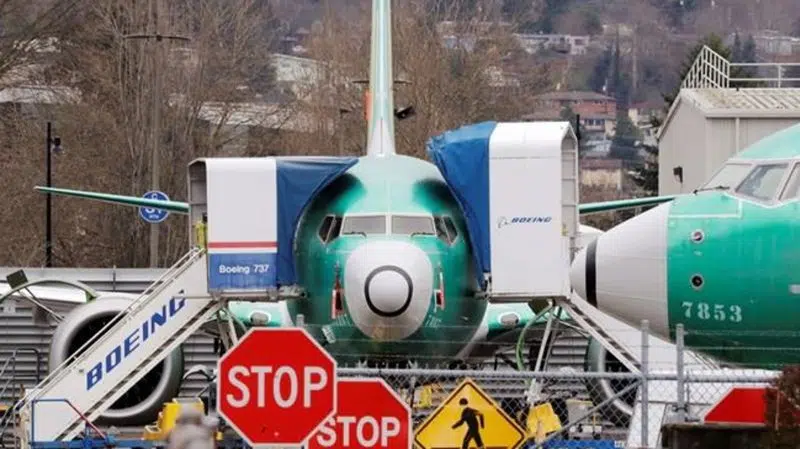
Boeing papers show employees slid 737 Max problems past FAA
Lawmakers on Capitol Hill lashed out at Boeing on Friday after the release of a batch of emails and text messages in which company employees questioned the safety of the now-grounded 737 Max, called the aircraft a “joke” and talked about how they concealed problems from regulators.
In the messages, released nearly a year after two deadly Max crashes plunged the vaunted aircraft manufacturer into the biggest crisis in its history, employees also called proposed pilot training on the jet a “turd,” wrote that few of those on the Max team were interested in the truth, and bragged about using a “Jedi mind trick” to sway some regulators.
Some of the discussion centred on problems with the company’s flight simulators, which are used to develop new planes and then train pilots on them.
“Would you put your family on a MAX simulator trained aircraft?” one employee asked another. “I wouldn’t.” The other employee responded: “No.”


